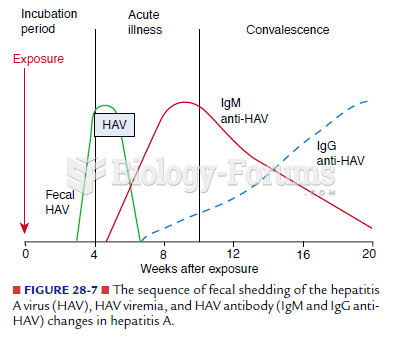This topic contains a solution. Click here to go to the answer
|
|
|
Did you know?
Computer programs are available that crosscheck a new drug's possible trade name with all other trade names currently available. These programs detect dangerous similarities between names and alert the manufacturer of the drug.
Did you know?
The immune system needs 9.5 hours of sleep in total darkness to recharge completely.
Did you know?
The horizontal fraction bar was introduced by the Arabs.
Did you know?
In the ancient and medieval periods, dysentery killed about ? of all babies before they reach 12 months of age. The disease was transferred through contaminated drinking water, because there was no way to adequately dispose of sewage, which contaminated the water.
Did you know?
There are approximately 3 million unintended pregnancies in the United States each year.







